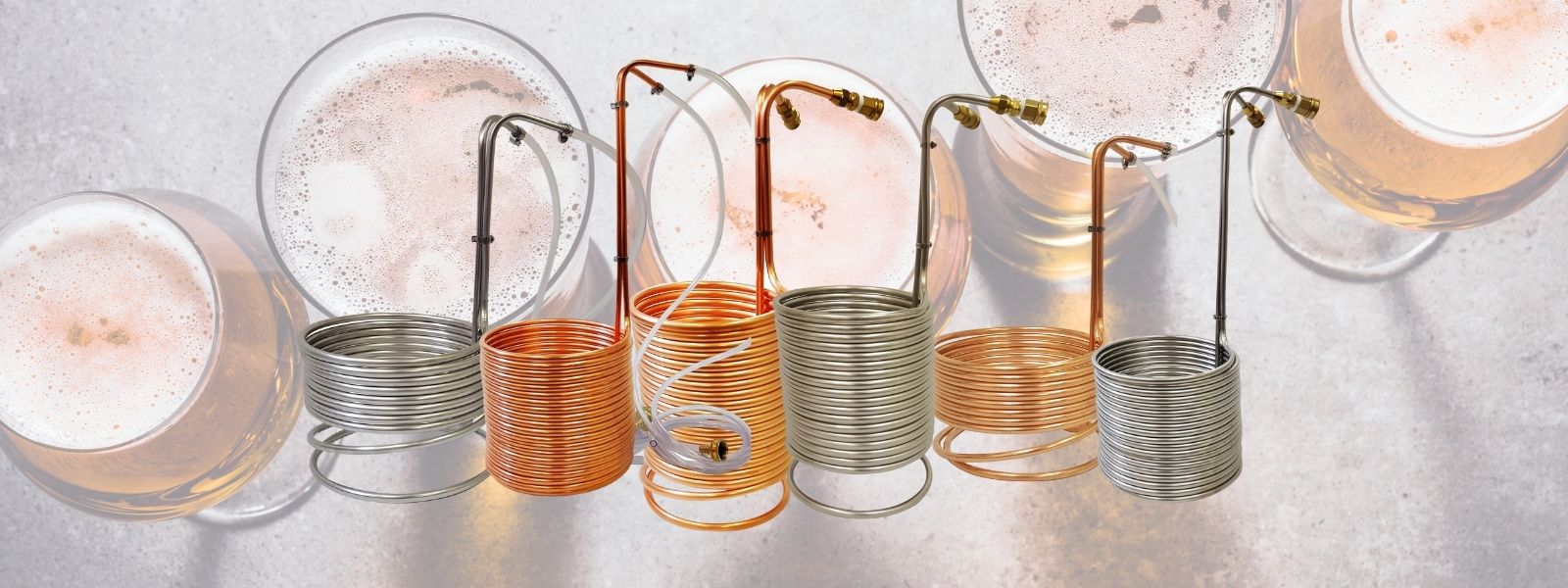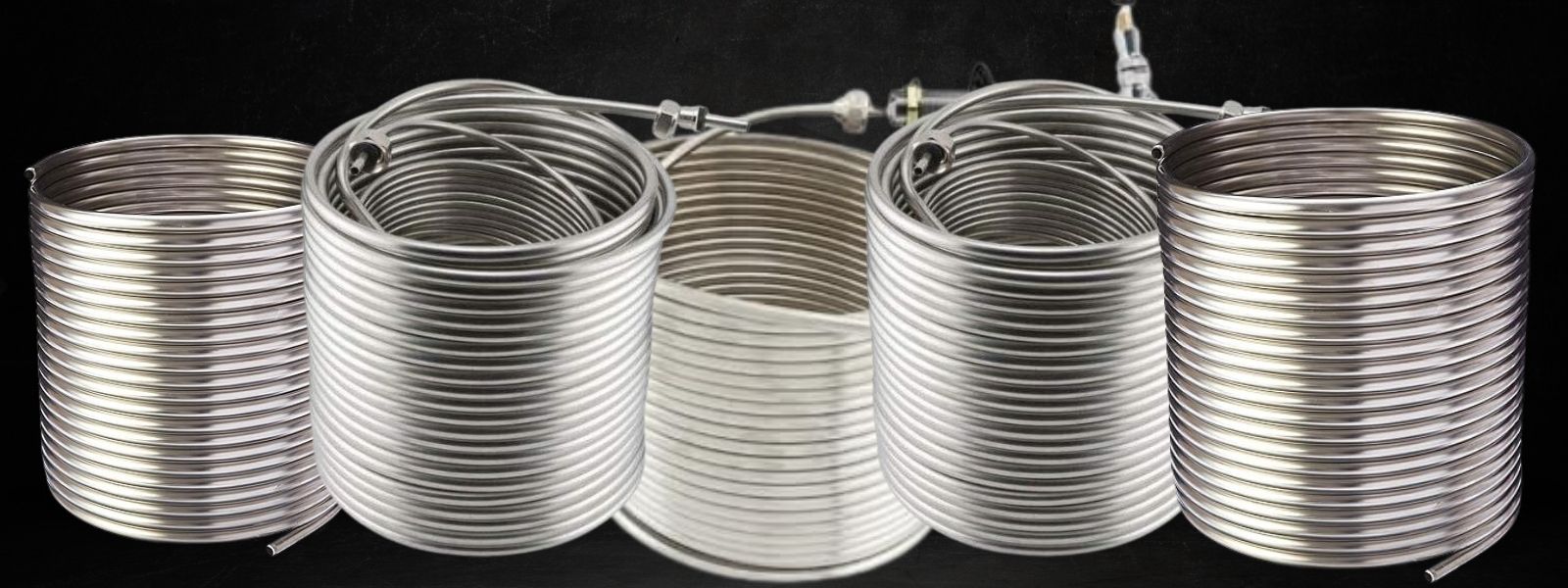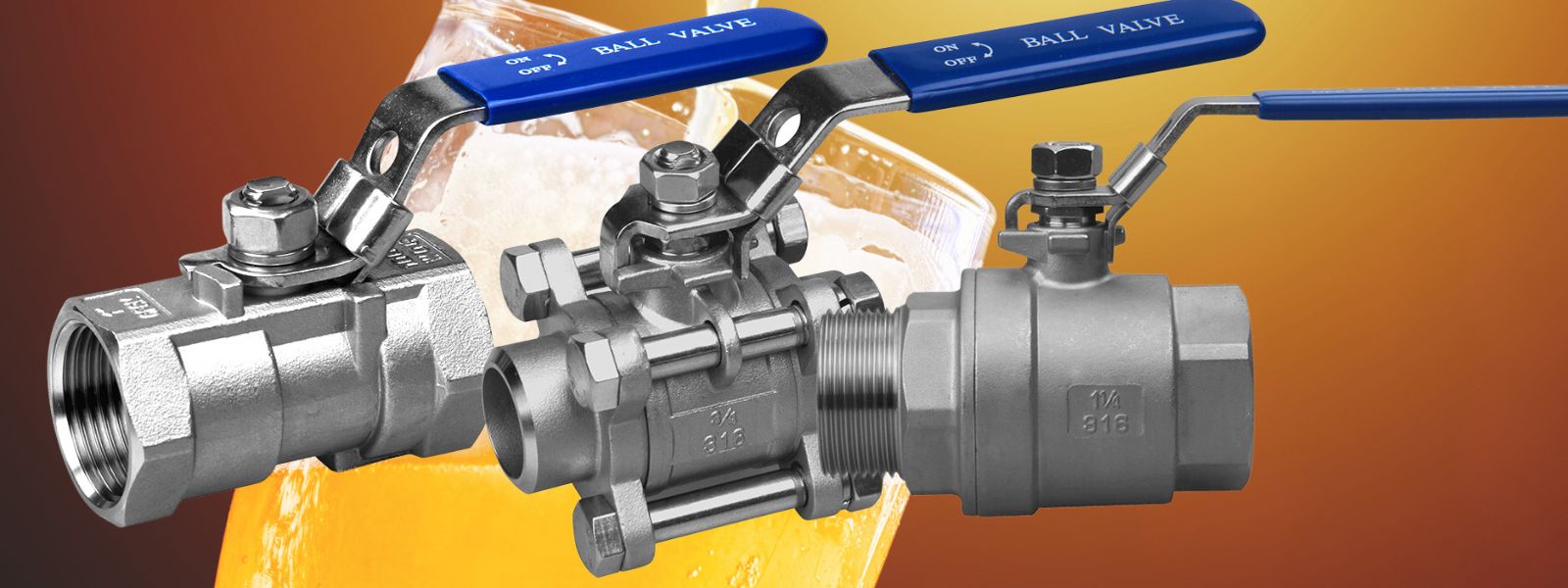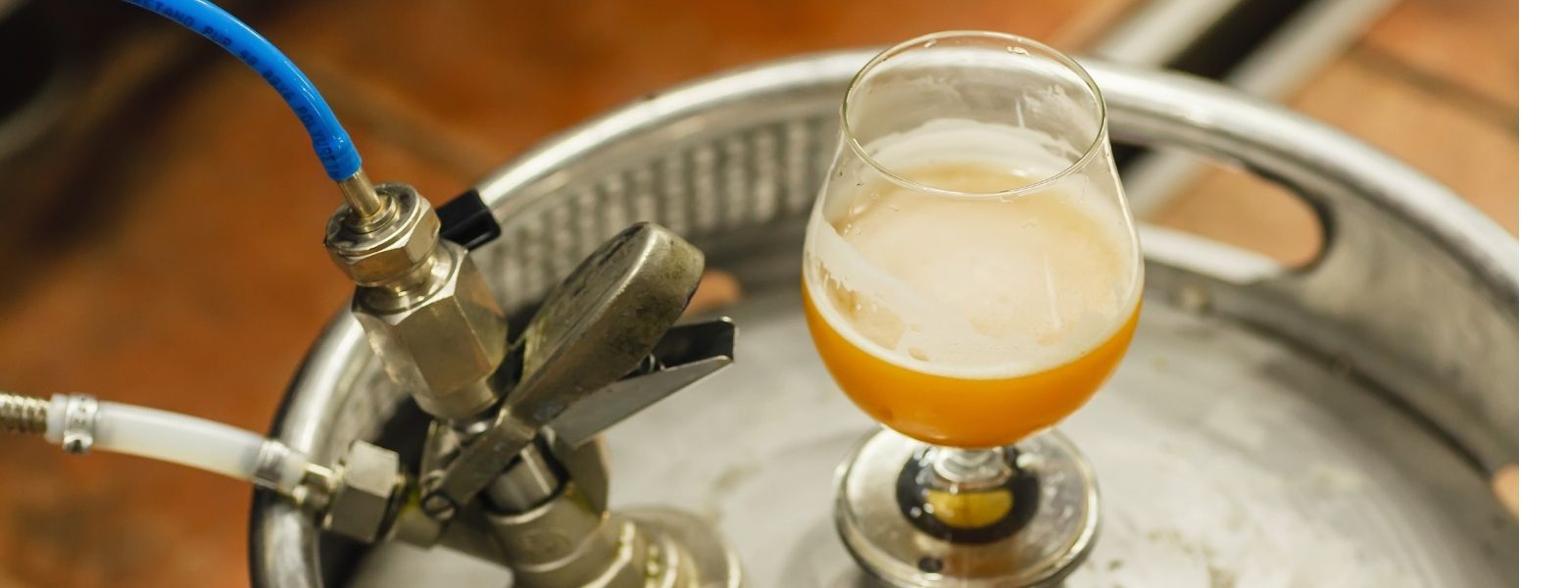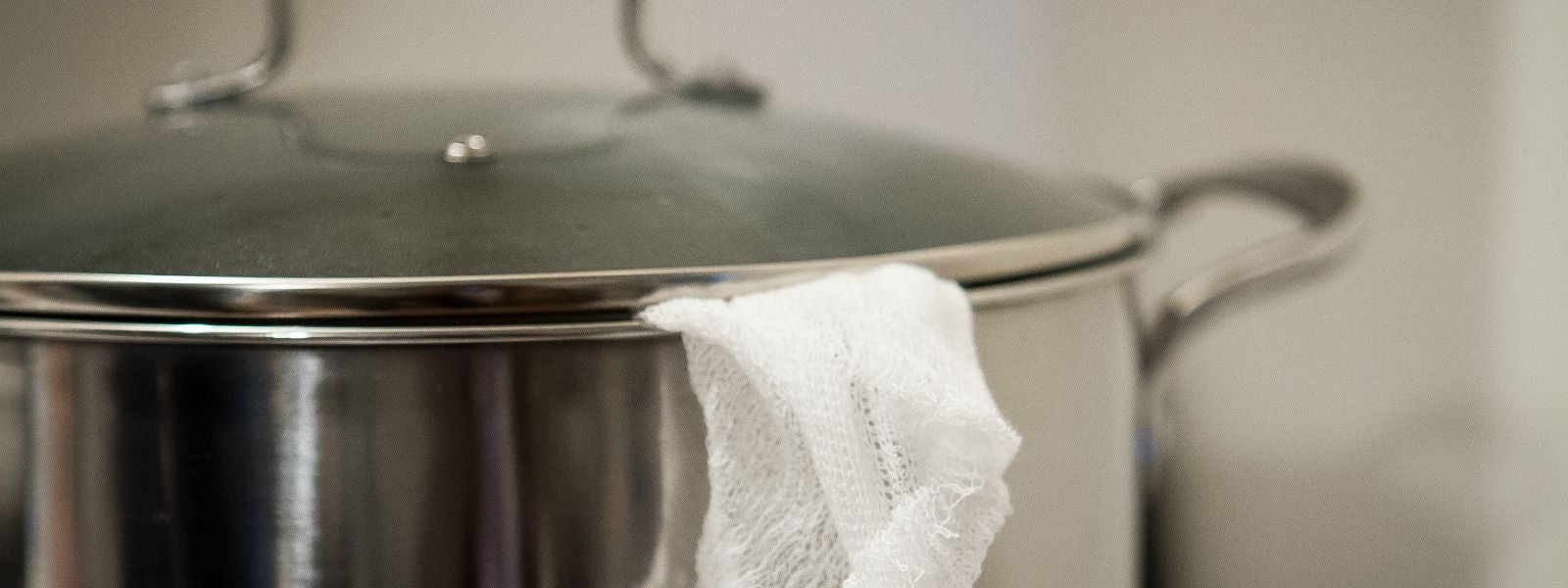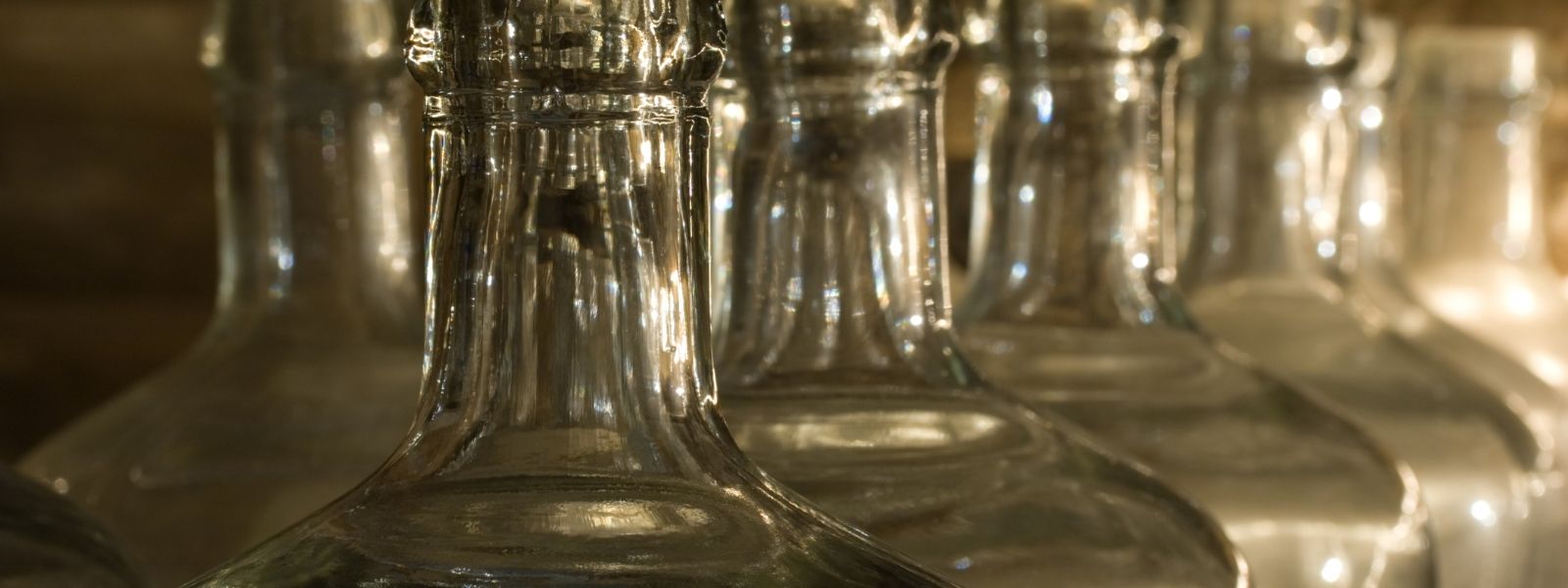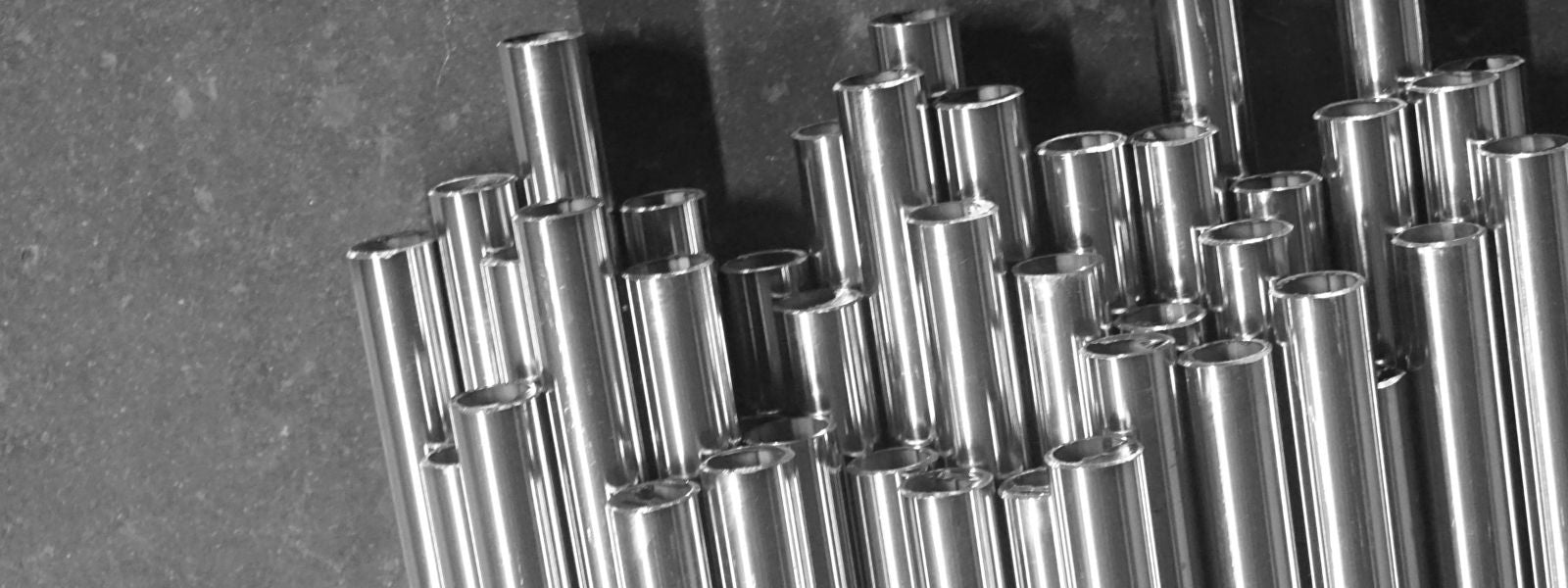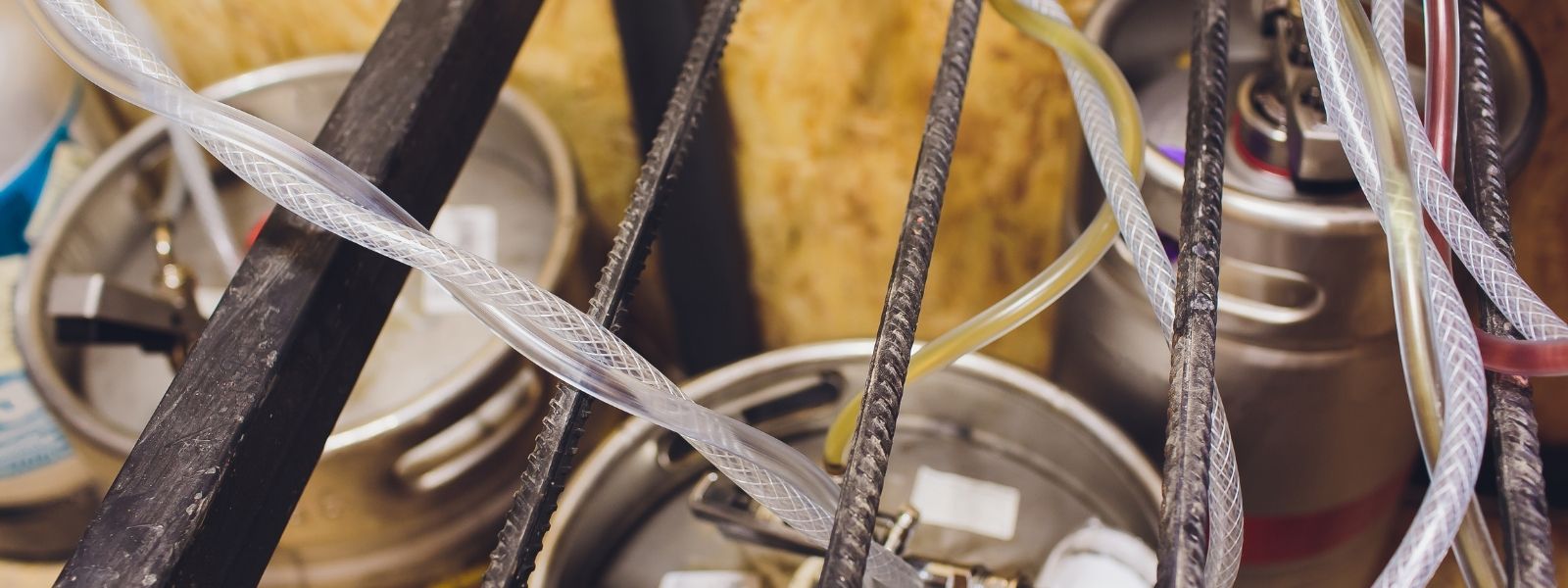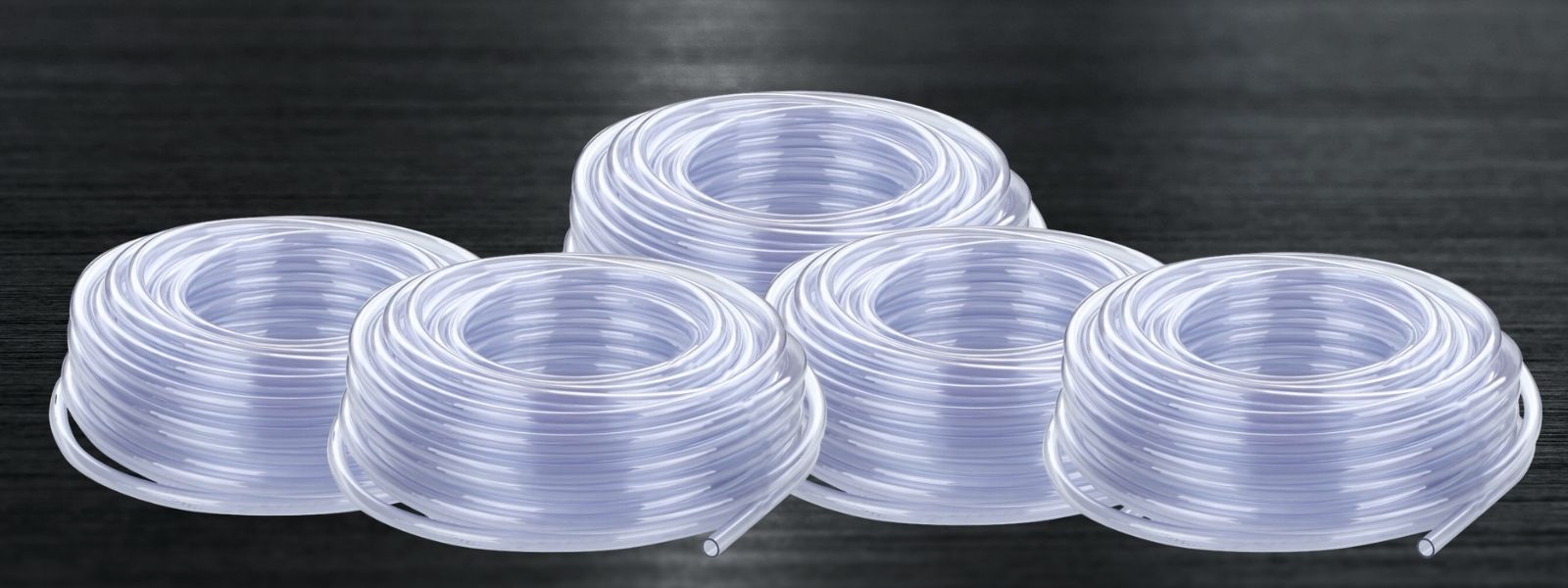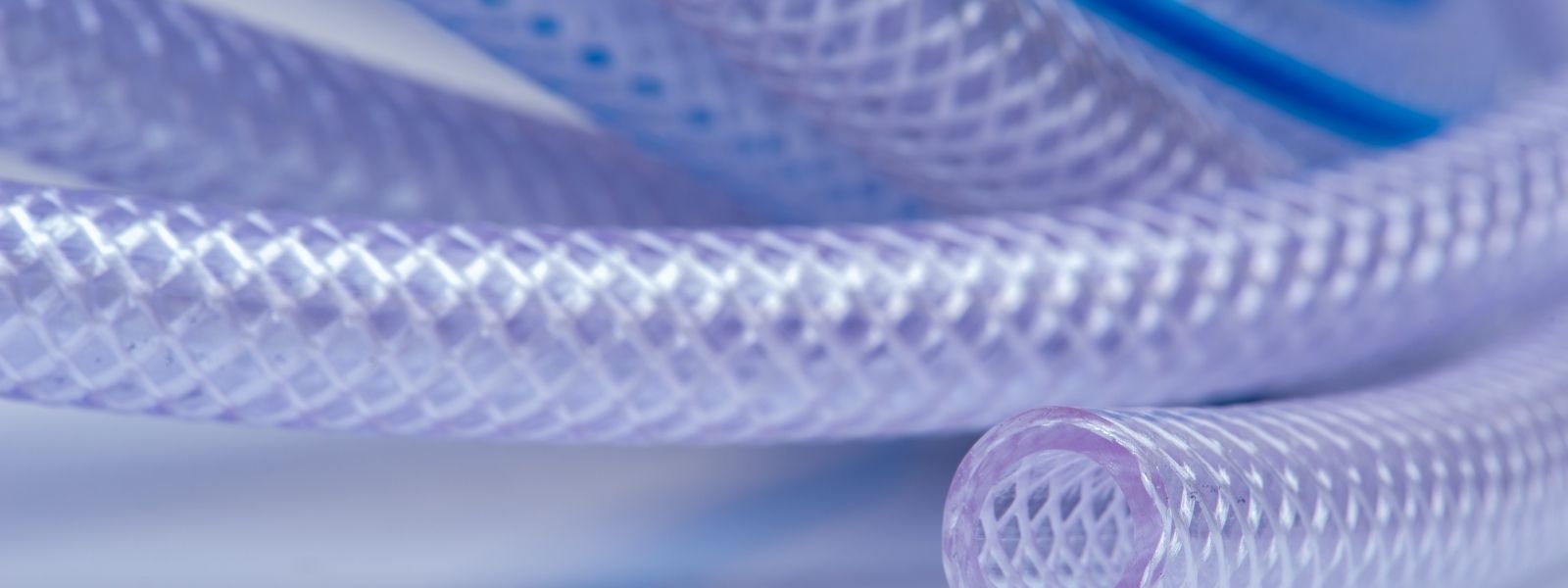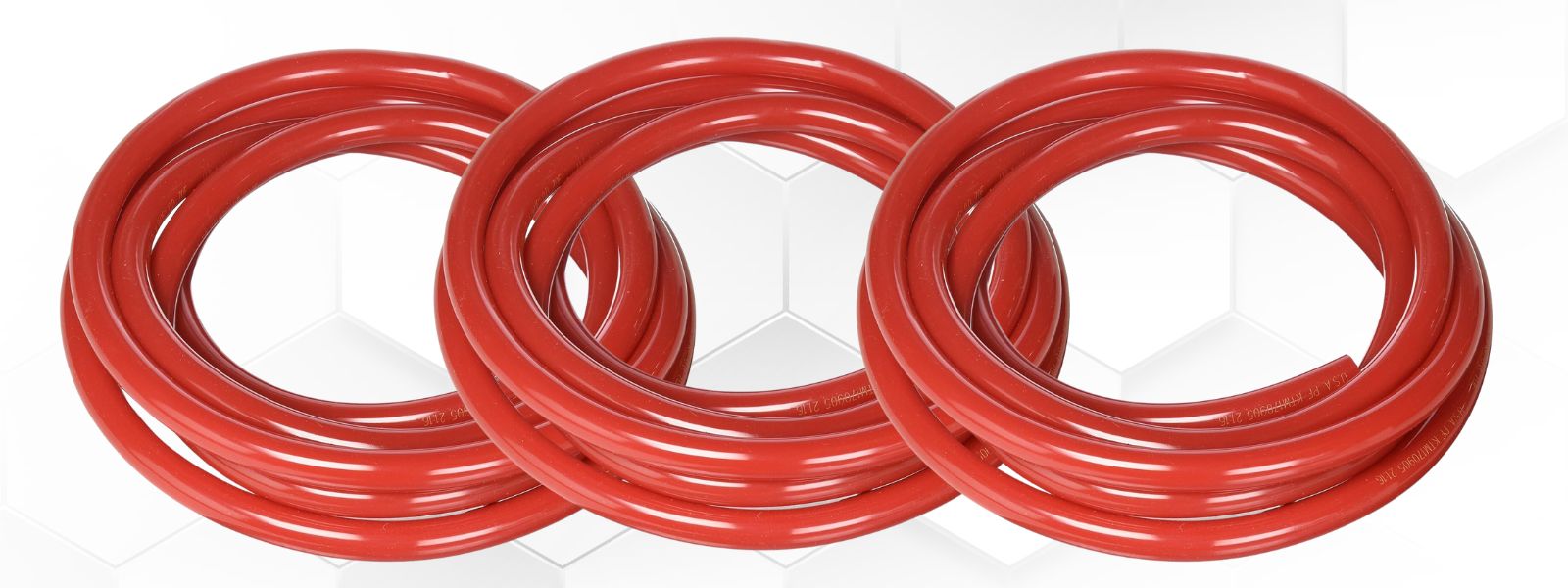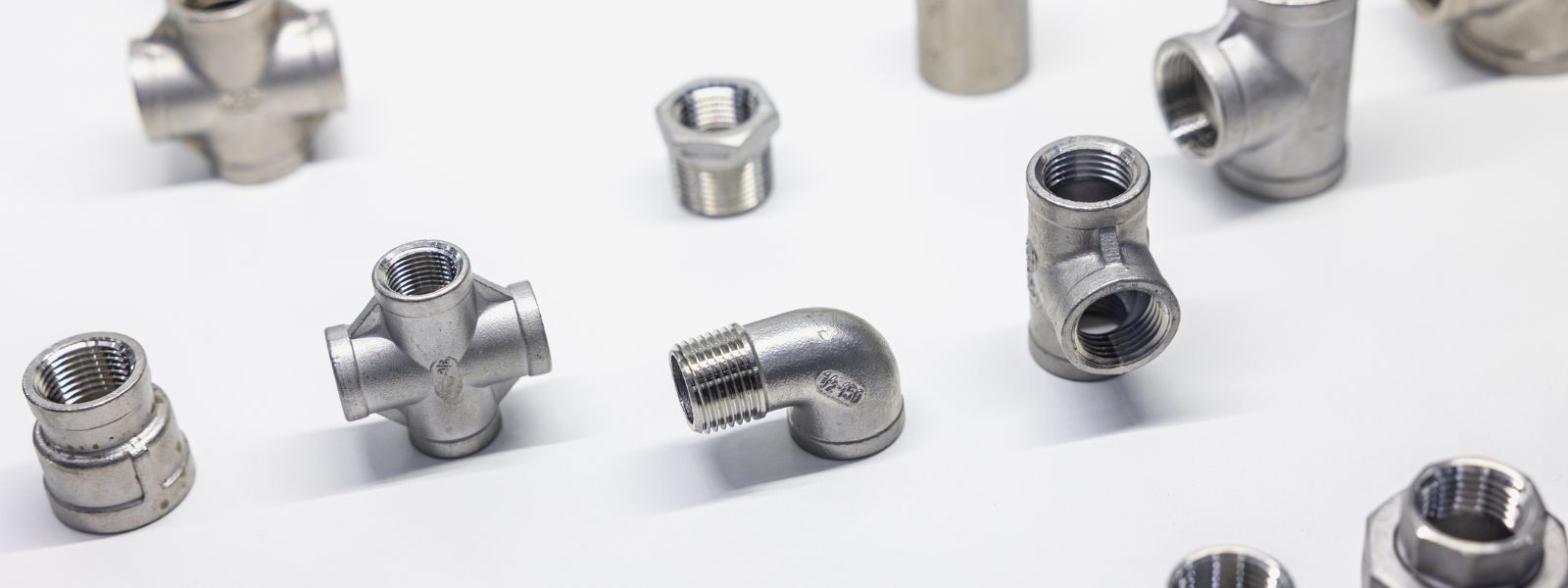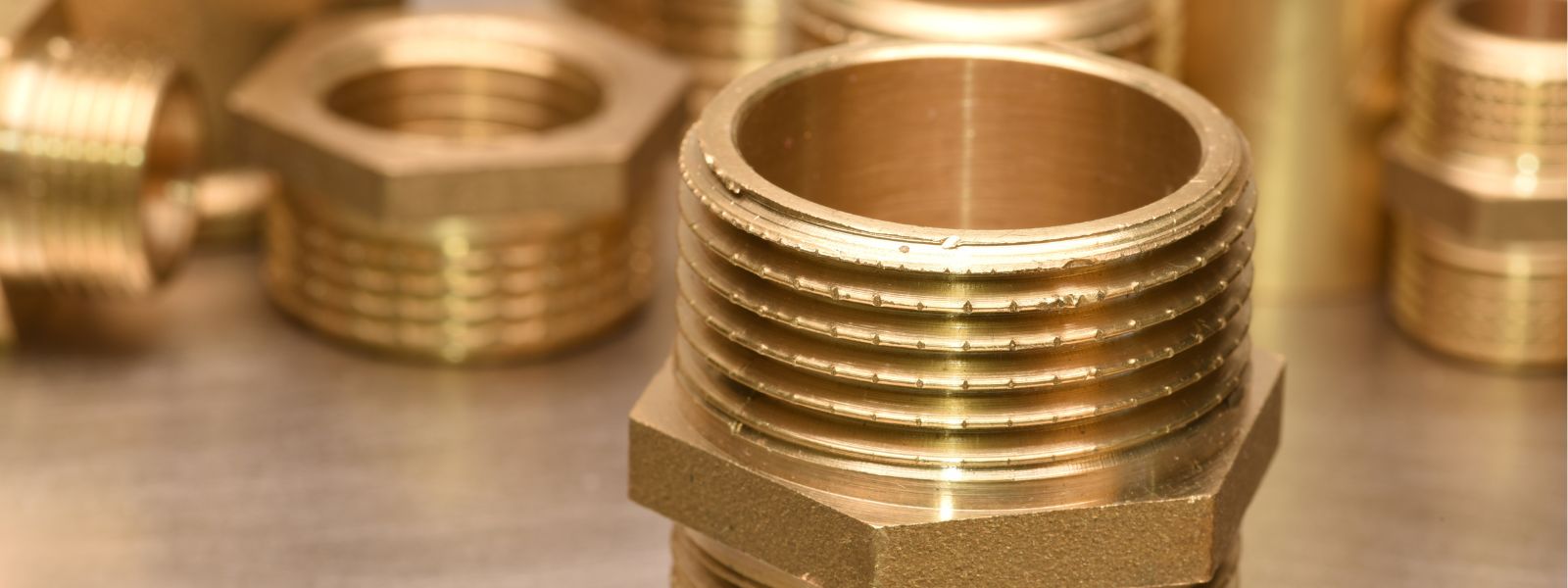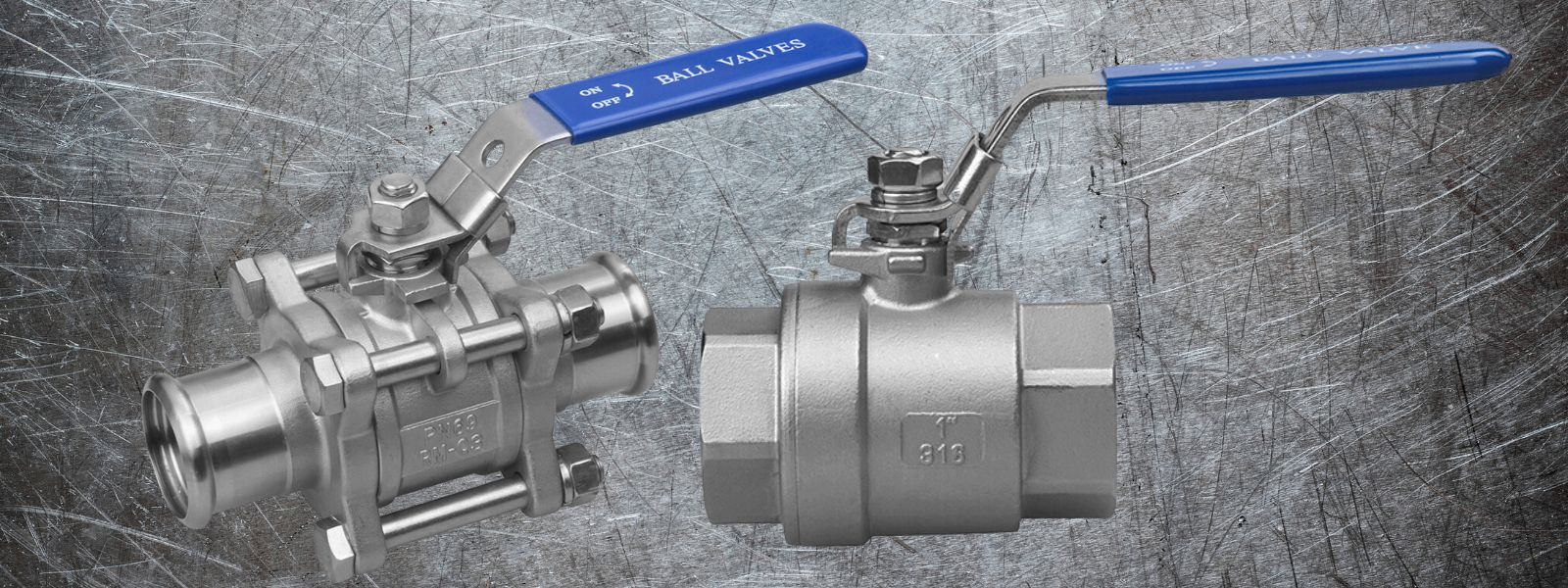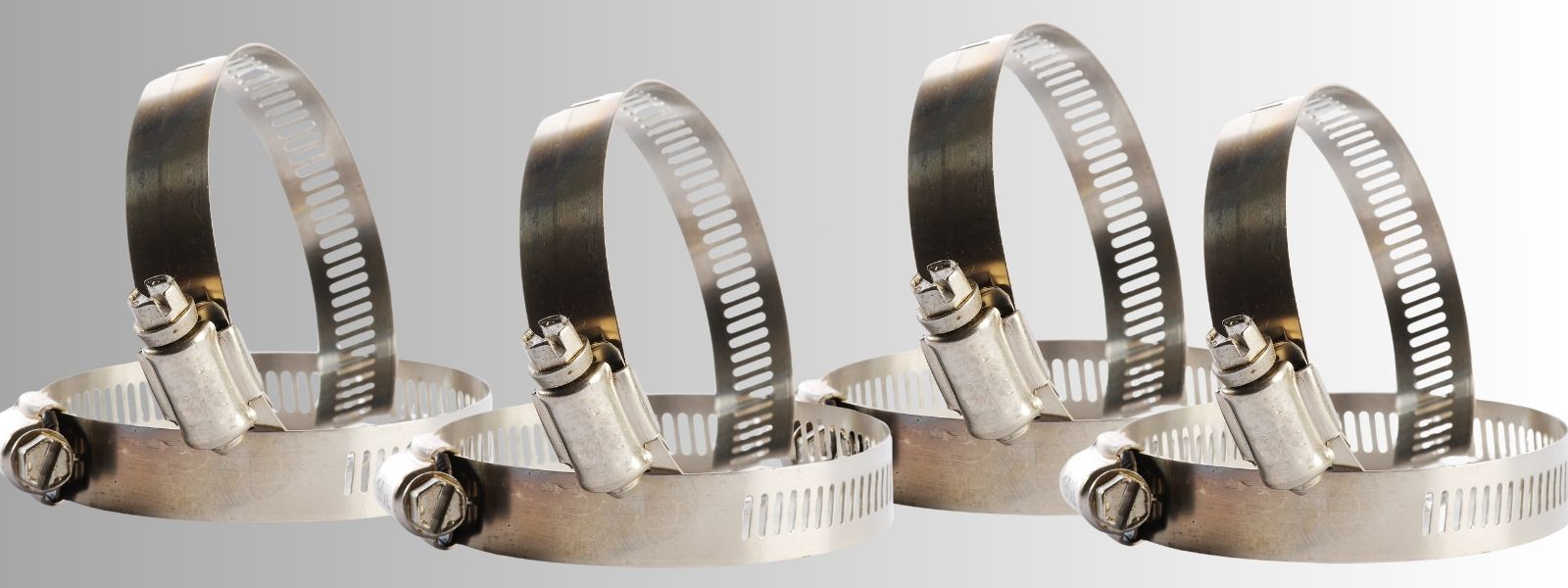- Heat Exchange Coils
- Dispensing
- Brewing
- Tubing
- Fittings & Clamps
-
Recently Viewed
You have no recently viewed items.

Copper vs Stainless Steel Chillers: Which one is right for you?
When it comes to brewing beer at home, cooling the wort quickly and efficiently is a crucial step in the process. Wort chillers, which help bring the temperature of the wort down after boiling, come in two primary materials: copper and stainless steel. Each has its unique advantages, and the choice between them can impact the quality and efficiency of your brewing process. Let's explore the benefits of choosing a copper wort chiller versus a stainless steel wort chiller.
Copper Wort Chillers
1. Excellent Thermal Conductivity: Copper is renowned for its excellent thermal conductivity, which means it can transfer heat much faster than many other metals, including stainless steel. This property allows a copper wort chiller to cool the wort more quickly, reducing the risk of contamination and ensuring that the flavors are preserved. Rapid cooling also minimizes the chances of producing off-flavors that can occur when the wort stays at high temperatures for too long.
2. Antimicrobial Properties: Copper has natural antimicrobial properties, which can help reduce the risk of bacterial contamination in your wort. While this doesn't replace the need for proper sanitation, it adds an extra layer of protection, giving homebrewers added peace of mind.
3. Copper allows for some easy adjustments: Stretch the coils apart to expand the chiller for larger brew kettles.
Stainless Steel Wort Chillers
1. Durability and Strength: Stainless steel is known for its durability and resistance to corrosion, making it an excellent choice for equipment that needs to withstand frequent use and cleaning. Unlike copper, which can tarnish over time, stainless steel retains its appearance and integrity even with heavy use.
2. Resistance to Oxidation: One of the significant advantages of stainless steel is its resistance to oxidation and rust. This property is especially beneficial in brewing, where exposure to moisture is constant. Stainless steel's resistance to rust and corrosion ensures a longer lifespan for the chiller, providing consistent performance over time.
3. Lower Maintenance: Stainless steel is generally easier to maintain and clean than copper. It doesn't require the same level of care to prevent tarnishing, and it's less likely to develop patina or other surface issues. This can save time and effort in the long run, making it an attractive option for brewers who prefer a low-maintenance solution.
Choosing the Right Wort Chiller for You
The decision between a copper and stainless steel wort chiller often comes down to personal preference, budget, and specific brewing needs. Here are some key considerations to keep in mind:
- Budget: Copper chillers may tend to be more expensive than stainless steel options due to the cost of the raw material. However, the higher thermal conductivity of copper can make it a worthwhile investment for those looking for faster cooling times.
- Durability: If you're looking for a wort chiller that will last for many years with minimal maintenance, a stainless steel chiller might be the better choice. Its resistance to corrosion and ease of cleaning make it a long-term solution.
- Cooling Efficiency: For brewers who prioritize rapid cooling and are willing to invest in a more expensive option, copper wort chillers offer superior thermal conductivity, which can enhance the brewing process and improve the quality of the final product.
Ultimately, both copper and stainless steel wort chillers have their unique benefits. By understanding the strengths of each material, you can make an informed decision that best suits your brewing style and goals. Happy brewing!
- Choosing a selection results in a full page refresh.

